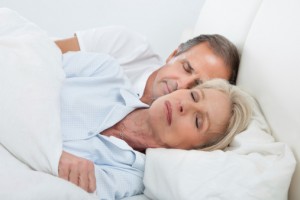 Getting a good night’s sleep seems to be increasingly difficult these days. And if you’re over 65, there’s a very real chance it is. The good news is that you can sleep better by paying attention to a few simple factors that attribute to sleep quality.
Getting a good night’s sleep seems to be increasingly difficult these days. And if you’re over 65, there’s a very real chance it is. The good news is that you can sleep better by paying attention to a few simple factors that attribute to sleep quality.
Roughly 60% of Americans battle some form of insomnia each year, with women and people over 65 being disproportionately affected. People over 65 are over 1.5 times more likely to report bouts of insomnia than younger people.
The reasons why Americans are collectively struggling with sleep aren’t always clear. There are a number of potential causes to this alarming trend—called a “public health epidemic” by the Centers for Disease Control and Prevention—and there is still ongoing research about what can be done to limit the problem.
There is a growing body of evidence showing that environmental and physical factors play a role. From the loud sounds and bright sights outside your window and inside your home to the stresses in your life, the causes of insomnia come in many shapes and sizes, but the results are the same. The less sleep you get, the faster your health can deteriorate.
Reduced sleep caused by insomnia is linked to higher rates of anxiety and depression, greater risk of high blood pressure, and heart disease. Furthermore, it can impact memory and daily functioning. This can all lower your quality of life, make you more susceptible to injury, and lower overall productivity.
Knowing what might be causing your sleeping troubles is essential if you want to try and fix it. The following are some of the top reasons you might not be sleeping and what might be able to help you make up for the sleep you so desperately need.
Anxiety
Anxiety is both a symptom and major cause of insomnia. When your mind is in an irritable place—worrying about work, personal relationships, or even why you’re not asleep—it can sabotage your best efforts. There are different methods for stress relief that you can incorporate into your day. If you find yourself trying to sleep and are unable to escape a racing mind, it’s wise to get out of bed. Change your surroundings for a moment and try to collect yourself by doing something different. Sit quietly and focus on breathing or drink some decaffeinated peppermint tea to put you in a more relaxed state.
Light from Screens
The bright lights on your television, phone, or tablet might be great for capturing and displaying the colors of the rainbow, but these devices have a time and a place where they are of best use. Their bright lights can offset your light/dark cycle by stimulating your eyes, brain, and body at times when you’re conditioned to adjust to darkness. When your body might naturally be trying to rest, these bright lights are telling you to wake up. If you’re watching television too close to bedtime, or looking at your phone or tablet, there’s a good chance it’s impacting your ability to sleep. Start shutting your electronics down about an hour before bed and focus on quiet time. A light conversation, some reading, or something else that won’t be shining bright lights in your face is a great way to wind down and get ready to sleep.
Restless Leg Syndrome
Having a hard time getting comfortable is another reason that people struggle to sleep. Restless leg syndrome is when you’re kept awake by a constant urge to move your legs. It may impact your ability to fall asleep or even keep you up at night, fragmenting your sleep as you try to readjust. A good way to try and avoid this is by moving your legs during the day. Spend more time standing or walking around during the day or in the evening in order to fatigue your legs. Exercise is often the best way to combat restlessness.
Stimulants
I don’t need to tell you that caffeine can keep you awake, so I’m not going to say anything about how late you should be drinking coffee. But caffeine and other stimulants lurk in other areas and might be found where you’d least expect them. Caffeine is found in a host of medications, like pain relievers and cold remedies. So if you’re taking those regularly or too close to bedtime, they could be keeping you up at night.
Inconsistency
Another big reason why sleep can be hard to come by is inconsistency. If you haven’t established a routine of going to bed and waking up at specific times on a regular basis, it can be very hard to regulate your circadian rhythm. For example, if you’re lying down to sleep at midnight four nights a week and falling asleep at 9:00 p.m. three nights a week, your body will have a hard time adjusting, making it difficult to get regular, quality sleep. Try going to bed and getting up at the same time every day; it will be difficult at first, but your body will adjust with time and you can enjoy the benefits of a quality sleep every night!
Sources:
“Adopt Good Sleep Habits,” Harvard Medical School web site, December 12, 2008; http://healthysleep.med.harvard.edu/need-sleep/what-can-you-do/good-sleep-habits, last accessed April 2, 2015.
Senelick, R., “Migraines, Headaches and Caffeine,” WebMD.com, January 17, 2015; http://www.webmd.com/migraines-headaches/guide/triggers-caffeine, last accessed April 2, 2015.
“Sleep Aids and Insomnia,” National Sleep Foundation web site, 2015; http://sleepfoundation.org/sleep-disorders-problems/insomnia/sleep-aids-and-insomnia, last accessed April 2, 2015.
“Insufficient Sleep is a Public Health Epidemic,” CDC web site, January 13, 2014; http://www.cdc.gov/features/dssleep/, last accessed April 2, 2015.
